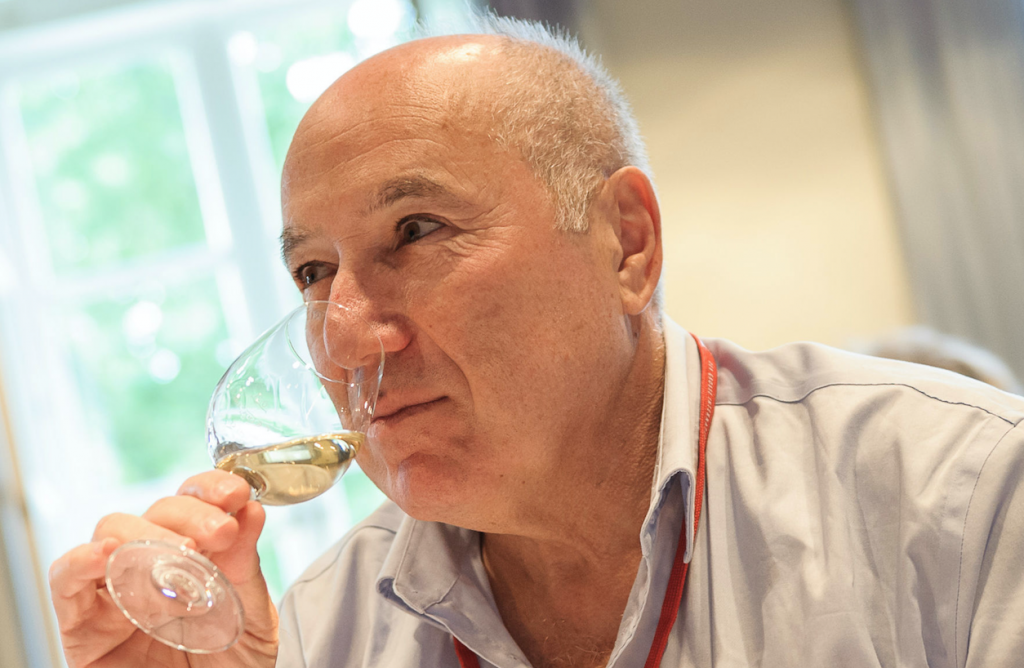One of Israel’s top wine and spirits journalists, Yair Koren Kornblum has seen many changes in the wine industry during his career as a writer, broadcaster and editor, which spans over four decades. In this interview Yair tells us about the importance, and early start, of wine drinking in the Jewish tradition; the exciting styles emerging from this historic wine country today; and why it can be “very frustrating” working as a wine professional in Israel. He also delves into his favourite wine regions in Italy and in the video highlight you can see why Austria and Germany follow closely behind. Yair is co-author of The Comprehensive Guide to Israeli Wines, publishes frequent articles online on his website in Hebrew and is an international wine judge and critic.
What’s your earliest memory of wine, or when do you remember first drinking wine?
I don’t remember… I think I was a teenager. In the Jewish tradition you drink wine during Passover and you have to drink four glasses. And you know there is wine in a younger Jewish tradition – when Jewish boys are eight days old they are given a little wine so as to not feel the pain of circumcision. Wine is in the Jewish tradition, maybe sweet wine or also grape juice.
In Israel, the modern wine industry started only at the end of the 19th century with [Edmond de] Rothschild, because all the vineyards were destroyed during the Muslim period. They left them for religious purposes in some monasteries. This is why we don’t really know what the varieties were in Israel when our ancestors made wine. Now, there is a lot of research into it and ancient varieties are being rediscovered.
What’s life like in Israel today as a wine professional?
I must tell you that it is very frustrating. I’ve been broadcasting and writing about wine for 20 years and I don’t see a big change in consumption, which is still very low, at less than five litres per capita [per year]. I don’t know if it’s our fault as the press. Young people look for spirits when they go to pubs and bars, but wine is considered something more for snobs. Wine is also expensive in Israel. It’s not like in Italy where you can buy a decent bottle for four euros in a supermarket. This doesn’t exist in Israel. We have very nice wine shops and in supermarkets you can find a good choice of wines. The situation is a bit of a contradiction: we are a very old wine-producing country but the industry is modern. We have a lot of young [winemakers] who’ve studied everywhere, in Adelaide, in Montpellier and in Milan. We have different styles of wine and different approaches to wine. The varieties are Chardonnay, Cabernet and Merlot but now people are searching for our identity. We want to be eastern Mediterranean, like Lebanon and Turkey. We’re trying to make wine from Grenache and Syrah – I don’t know why Syrah is considered Mediterranean [laughs]. Syrah is doing very well in Israeli terroir.
Aside from Israel, what’s your favourite wine region in the world?
I lived in Italy for many years. When I’m in Rome, I drink Roman wines from the hills around Rome, like Frascati, Marino and Colli Albani. When I try to take a bottle of one of them to my Israeli friends, they don’t like it – it’s too dry for them. My favorite is Piemonte, where I have many friends and the wines are great. I also like Tuscany, and the white wines of Friuli and wines from the south like Aglianico.
My second love is Austria and my third is Germany.
Tell me about your upcoming plans or projects…
I’ve not been broadcasting since our broadcasting authority was closed by the government and I opened an internet site of my own and I’ve continued to write on my experiences abroad for an Israeli magazine for which I’ve been with for almost 20 years.
What’s your favourite mid-week drink?
I try not to drink everyday; I try [not to] but don’t always succeed [laughs]. It’s very difficult [not to drink] but I think [it’s] necessary. I also like beer, good whisky and cognac. For wine, something in the style of Gaja for example, a good Barbaresco and Barolo, or Brunello. I love Champagne. We had a fantastic trip with the Circle, with Caroline Henry, we visited small growers and at least one big house. Everyone in Champagne talks like philosopher. It’s not about the view of the vineyards of Champagne, which are nice, but the people stick to their terroir and speak about it with love and passion.
Interview and introduction by Amanda Barnes
Edited by Robert Smyth

